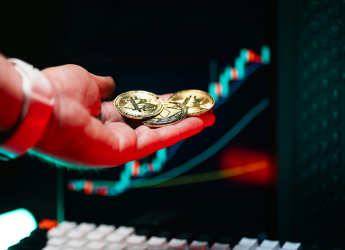- Home
- Science
- Science News
- NASA Studying Behavioural Changes In Astronauts Working With Plants in Space
NASA Studying Behavioural Changes In Astronauts Working With Plants in Space
The study will help NASA better design food systems for future, distant space missions.

NASA wants to see if growing fresh vegetables will help cope with isolation
NASA is conducting a study to see how astronauts feel about growing their own vegetables aboard the International Space Station (ISS). Growing your own vegetables and eating them fresh has multiple benefits, health and nutrition-wise. The space agency says the study will also allow it to understand whether gardening in leisure time can help astronauts ease their sense of confinement on board the space station.
Initial results show that some astronauts loved working with the plants, spending hours of their free time, during their mission, caring for the plants. Others spent their time doing different activities, the agency said in a blog post. Despite the variable behaviour exhibited by them, no astronaut viewed their work with the plants as “meaningless”; everyone valued the utility of growing plants in space.
The study will help NASA better design food systems for future space missions (for example Mars exploration). Designing a space food system is a delicate task, requiring scientists to ensure the food provides ample sustenance for long-duration missions. NASA scientists are already working on developing such a food system for astronauts.
Dr. Gioia Massa, project scientist at NASA's Kennedy Space Centre in Florida, is leading the research related to cultivation of vegetables in space. Her team is asking the astronauts to complete a survey about their space-gardening experience. For example, those growing mizuna mustards take the survey two to three times for the month-long growth cycle of the plant.
Massa's team is trying to understand how space-gardening affects the astronauts' moods with questions such as whether gardening was engaging, demanding, or meaningful? Did it impact the performance of mission tasks or relationships with crew members? How gardening impacted sensory stimulation for sight, touch, smell, and taste? When the vegetables are ready to eat, they will be asked to rate the flavour, colour, appearance, aroma, texture, and taste of the produce for a sensory assessment.
So far, seven astronauts have completed the survey but the researchers hope to survey a total of 24 astronauts eventually.
“We are learning what crops to grow to help supplement the diet, which activities should be automated or remotely operated, and which should have options for crew involvement,” said Massa.
She added that different space missions will require different solutions. For now, their focus is on adaptability.
Get your daily dose of tech news, reviews, and insights, in under 80 characters on Gadgets 360 Turbo. Connect with fellow tech lovers on our Forum. Follow us on X, Facebook, WhatsApp, Threads and Google News for instant updates. Catch all the action on our YouTube channel.
Related Stories
- Samsung Galaxy Unpacked 2025
- ChatGPT
- Redmi Note 14 Pro+
- iPhone 16
- Apple Vision Pro
- Oneplus 12
- OnePlus Nord CE 3 Lite 5G
- iPhone 13
- Xiaomi 14 Pro
- Oppo Find N3
- Tecno Spark Go (2023)
- Realme V30
- Best Phones Under 25000
- Samsung Galaxy S24 Series
- Cryptocurrency
- iQoo 12
- Samsung Galaxy S24 Ultra
- Giottus
- Samsung Galaxy Z Flip 5
- Apple 'Scary Fast'
- Housefull 5
- GoPro Hero 12 Black Review
- Invincible Season 2
- JioGlass
- HD Ready TV
- Laptop Under 50000
- Smartwatch Under 10000
- Latest Mobile Phones
- Compare Phones
- OPPO A6v 5G
- OPPO A6i+ 5G
- Realme 16 5G
- Redmi Turbo 5
- Redmi Turbo 5 Max
- Moto G77
- Moto G67
- Realme P4 Power 5G
- HP HyperX Omen 15
- Acer Chromebook 311 (2026)
- Lenovo Idea Tab Plus
- Realme Pad 3
- HMD Watch P1
- HMD Watch X1
- Haier H5E Series
- Acerpure Nitro Z Series 100-inch QLED TV
- Asus ROG Ally
- Nintendo Switch Lite
- Haier 1.6 Ton 5 Star Inverter Split AC (HSU19G-MZAID5BN-INV)
- Haier 1.6 Ton 5 Star Inverter Split AC (HSU19G-MZAIM5BN-INV)

















